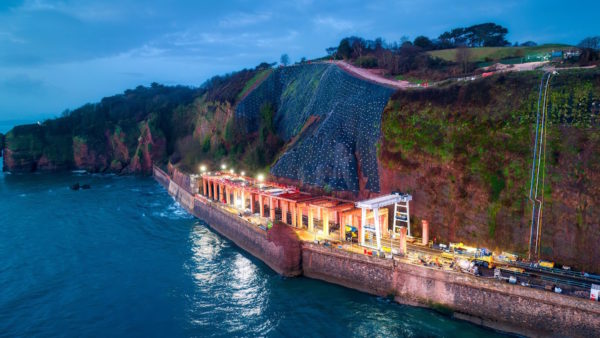
A transport thinktank has secured £46m in public and private funding to use digital twins to decarbonise transport in the UK.
The TransiT Hub is a collaboration of eight universities and 67 partners jointly led by Heriot-Watt University in Edinburgh and the University of Glasgow. It has secured £20m from UK Research and Innovation’s Engineering and Physical Sciences Research Council. A further £26m in support is being provided by stakeholders across the digital, energy and transport sectors, including transport operators, regulators, vehicle makers, technology companies and energy suppliers.
TransiT will identify the lowest-cost, least risky and most energy-efficient way to decarbonise transport by using digital twins. It cited a practical example: a digital twin automatically updating digital road signs with information on the shortest route out of a traffic jam, based on real-time traffic data in that location.
The TransiT team expect their approach to include elements of a future decarbonised UK transport system that do not yet exist: for example, electric road systems and alternative fuels.
Data used to build the digital twins will include transport operations data from TransiT’s industry partners, such as number and type of vehicles, fuel types, load sizes, length and frequency of routes and links to other transport modes, such as ports and road networks. Transport users will also contribute to citizen research to help scientists model human travel behaviour and travel choices.
Experiment digitally
Professor Phil Greening is a logistics expert at Heriot-Watt University and joint director of TransiT. He said: “Transport accounts for about a third of UK carbon emissions and, with global temperatures rapidly rising, we have run out of time to carry out real-world transport trials and learn from them. So, if the UK is to meet its carbon reduction commitments, we have to do our experiments digitally. We need to design the future transport system and optimise the transition to it.
“Digital twins will help us see the where, what and how to decarbonise transport. We start by building individual models of real-world transport systems. These can then be connected together and linked to the real world to give a bigger picture of what our future decarbonised transport system might look like – and the lowest cost way of getting there.”
Professor David Flynn is a Professor in Cyber Physical Systems at the University of Glasgow and also a joint director of TransiT. He added: “It’s challenging for designers and engineers today to appreciate the perspective of citizens with mobility challenges and what they experience throughout the full journey. If we can create and embed new design principles, we can identify equitable pathways to decarbonisation.”
Personalised digital twin assistant
Transport users, including passengers and commuters, will benefit from research to identify and help them make decisions about the most sustainable travel choices on a local, regional and national level. For example, passengers could benefit from a personalised digital twin assistant, Professor Flynn said.
“This is similar to how your Netflix or Amazon account learns your preferences, and will build an understanding of your mobility needs, journey requirements and personal preferences,” he explained. “The digital twin assistant will then offer near- to real-time journey options that are end-to-end and that best fit your needs. It could update your best journey options based on your individual needs and budget, as well as the reliability of transport services, and how the impact of weather might change these.”
TransiT’s digital twinning approach can also provide a blueprint for other sectors that need transformational change, Professor Flynn said.
Don’t miss out on BIM and digital construction news: sign up to receive the BIMplus newsletter.
Comments
Comments are closed.













Derby in the East Midlands needs you to come in and advise them on their future transport policy.
They are currently producing a City Centre Design Guide which needs your input to establish what their aims and objectives are .